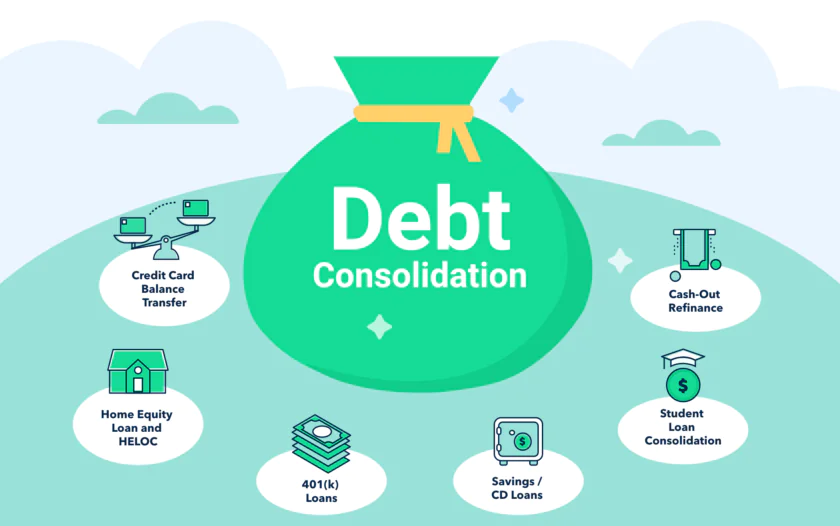In times of financial hardship or when an unexpected expense arises, many individuals seek out short-term financial solutions to bridge the gap. Easy money loans are one of the options available, especially for people who need quick cash but may not have the credit score or financial background to qualify for traditional loans.
In California, where living expenses are high and the cost of living continues to rise, easy money loans have become a popular choice. But before you consider applying for an easy money loan, it’s essential to understand how they work, the pros and cons, and what to watch out for. This guide will explain the ins and outs of easy money loans in California, helping you make an informed decision.
What Are Easy Money Loans?
An “easy money loan” is a term typically used for short-term loans that are easier to qualify for compared to traditional loans. They are designed to provide quick access to cash with minimal paperwork, usually with fewer requirements than conventional bank loans. Easy money loans can come in several forms, including:
- Payday Loans: Small loans that are usually due on your next payday.
- Title Loans: Loans secured by your vehicle title.
- Personal Loans: Unsecured loans with less stringent credit checks.
- Pawn Shop Loans: Loans where you pledge valuable items as collateral.
- Installment Loans: Loans where you borrow a larger sum of money and repay it in installments.
These loans are often used for emergency situations, such as medical bills, car repairs, or unexpected expenses, and they are typically available from payday lenders, pawn shops, and online lenders.
How Easy Money Loans Work
1. Application Process
The application process for easy money loans is designed to be simple and fast. Typically, you will need to provide basic information about yourself and your financial situation. While traditional loans often require a lengthy approval process, easy money loans are designed to be approved quickly. Here’s an outline of the typical steps in the application process:
- Fill Out an Application: Whether you’re applying online or in person, the first step is to complete an application form. This will usually require personal details, proof of income, and sometimes a credit check (although some easy money loans do not require one).
- Submit Documents: Depending on the type of loan, you may need to provide proof of identity, proof of income, a bank account statement, or your vehicle title (in the case of a title loan).
- Loan Approval: After reviewing your application, the lender will approve or deny your loan. The approval process is usually very quick, sometimes taking just a few minutes for payday loans or title loans.
- Receive Funds: Once your loan is approved, you will receive the funds, either via a direct deposit into your bank account or a cash payout, depending on the lender and the loan type. Some payday lenders will even offer you a physical check.
2. Loan Terms
The terms of easy money loans can vary greatly depending on the type of loan and the lender. Commonly, these loans have short repayment periods, ranging from a few weeks to a few months. However, because they are short-term loans, the interest rates tend to be much higher than those of traditional loans.
For example:
- Payday Loans: These loans are typically due in full on your next payday, often within two weeks. The amount you borrow is generally small, from $100 to $1,000.
- Title Loans: Title loans are secured by the value of your car. You can borrow a larger amount, sometimes up to 50% of your car’s value, but the loan is typically due in 30 days.
- Installment Loans: These loans are repaid in monthly installments over a period of several months or even years, and the loan amount can be larger than payday loans or title loans.
3. Fees and Interest Rates
One of the biggest concerns with easy money loans is the fees and interest rates. These loans tend to have very high interest rates, especially payday loans and title loans. For example:
- Payday Loans: Interest rates for payday loans can range from 300% to 400% annually. The fees for borrowing $100 might be as high as $15 to $30, which is due on your next payday.
- Title Loans: Title loans typically have APRs (Annual Percentage Rates) ranging from 100% to 300%. If you do not repay the loan on time, the fees can quickly escalate.
- Installment Loans: While these loans usually have lower interest rates than payday loans and title loans, they are still higher than those associated with traditional bank loans. Interest rates can vary from 20% to 100%.
The key to avoiding excessive fees is to ensure that you can repay the loan on time. Failure to do so can lead to additional charges, making it even harder to repay the loan.
4. Repayment Plans
Repayment plans for easy money loans depend on the type of loan you take out:
- Payday Loans: Payday loans are typically due in full on your next payday. You are expected to repay the amount you borrowed plus any fees or interest.
- Title Loans: Title loans are typically repaid in full after 30 days. However, you may be able to extend the loan by paying only the interest, though this can lead to higher costs in the long run.
- Installment Loans: Installment loans offer longer repayment periods, which can range from several months to a few years, allowing you to pay off the loan in smaller monthly payments.
Failure to repay your loan according to the agreed-upon schedule can result in additional fees, penalties, or even the repossession of collateral (in the case of title loans).
5. Loan Default and Consequences
If you are unable to repay your loan on time, the consequences can be severe. With payday loans, the lender may attempt to collect the loan by any means necessary, including legal action or garnishing your wages. In the case of title loans, the lender can repossess your car if you fail to make payments.
Loan default consequences can include:
- Late Fees: If you miss a payment, you will likely be charged late fees, which can quickly add up.
- High Penalties: Some payday lenders charge penalties that can increase your loan balance significantly.
- Debt Collection: If you default, the lender may send your debt to a collection agency, which can negatively affect your credit score.
- Loss of Collateral: For secured loans like title loans, failing to repay can result in the loss of your car.
Pros and Cons of Easy Money Loans
Before taking out an easy money loan, it’s important to weigh the pros and cons.
Pros
- Fast Access to Cash: The main benefit of easy money loans is that they provide quick access to funds, usually within a day or two.
- Easy Approval: Easy money loans tend to have fewer qualification requirements than traditional loans. Even borrowers with bad credit may be approved.
- No Credit Check: Some easy money loan options, like payday loans, do not require a credit check, making them accessible to individuals with poor or no credit.
- Flexible Loan Amounts: Depending on the type of loan, you can borrow small or larger sums of money, ranging from a few hundred dollars to several thousand.
Cons
- High-Interest Rates: The biggest downside to easy money loans is their high-interest rates, which can make borrowing expensive.
- Short Repayment Period: Many easy money loans are due within a short time frame, which can be difficult to meet for borrowers living paycheck to paycheck.
- Risk of Debt Cycle: Because of the high fees and interest rates, some borrowers may find themselves trapped in a cycle of debt, constantly renewing their loan or taking out new loans to pay off the previous one.
- Risk of Losing Collateral: With title loans, you risk losing your car if you cannot repay the loan on time.
How to Avoid Getting Trapped in Debt
If you decide that an easy money loan is the right option for you, it’s important to take steps to avoid falling into debt. Here are some tips:
- Borrow Only What You Can Repay: Only borrow the amount you are sure you can repay on time. Avoid taking out more than you need, as the fees will add up quickly.
- Understand the Terms: Make sure you fully understand the repayment terms, fees, and interest rates before accepting the loan.
- Avoid Rolling Over Loans: Some lenders offer to roll over your loan, meaning you pay only the interest and extend the loan period. Avoid this option if you can, as it leads to higher overall costs.
- Explore Other Financing Options: Consider other forms of credit, such as personal loans from a bank or credit union, before resorting to easy money loans.
Frequently Asked Questions (FAQs)
1. What is the maximum loan amount for a payday loan in California?
In California, payday loans are typically limited to $300 per loan. However, you can have multiple payday loans from different lenders, though this is not recommended due to the potential debt trap.
2. Can I get a payday loan if I have bad credit?
Yes, payday loans do not usually require a credit check, so individuals with bad credit can still qualify for a payday loan.
3. What happens if I can’t repay my easy money loan?
If you cannot repay your easy money loan, you may face late fees, increased interest rates, and even legal action. For secured loans, such as title loans, the lender may repossess your car.
4. Are easy money loans regulated in California?
Yes, payday lenders in California are regulated by the Department of Business Oversight, which ensures that lenders follow state laws regarding loan terms, interest rates, and fees.
5. How do I avoid falling into a debt cycle with payday loans?
To avoid falling into a debt cycle, borrow only what you need, repay the loan on time, and avoid taking out multiple loans from different lenders. Consider alternative options, such as personal loans or credit cards, before opting for payday loans.
Conclusion
Easy money loans in California can provide quick access to cash during emergencies, but they come with high costs and significant risks. While they may be tempting for those who need immediate funds, borrowers should be aware of the potential consequences, including high-interest rates, fees, and the risk of falling into a debt cycle. Always read the fine print, borrow responsibly, and consider other financial options before taking out an easy money loan.
Read more:




